UNSUNG HEROES
Nigerian conservationist and young eco-warriors battle wildlife crime with innovative methods
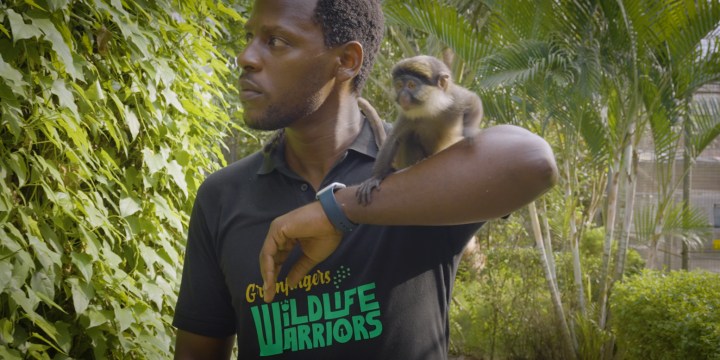
Nigerian conservationist Chinedu Mogbo started the Greenfingers Wildlife Sanctuary in his backyard, realising that the animal markets he frequented as a child were used to sell large numbers of dead animals for rituals, food and more.
In Nigerian conservationist and teacher Chinedu Mogbo’s backyard, what started out as a small place of refuge for threatened and endangered animals in 2012 has grown into an educational wildlife sanctuary with almost 200 animals that have been rescued.
The rescued animals are rehabilitated and eventually returned to the wild.
Mogbo has had a keen interest in animals since he was a small child and was excited to visit “animal markets” with his father. Although he did not know it at the time, these animals were sold as pets, used for rituals and further endangered Nigeria’s wildlife, but these were the only places Mogbo could go to see animals as a child.
Now he visits these markets to rescue the animals that are still alive and brings them to the Greenfingers Wildlife Sanctuary. Mogbo believes that wildlife crime is able to soar because wildlife conservation is not seen as a priority, and through innovative education at the sanctuary he is seeking to change this.
“The animals were trapped together, and you would see dead ones lying in the middle of the animals that were already there. Nobody really cared what was happening to them, they left them to rot. The ones that were alive were in the so-called ‘pet market’, but then there is another market that I never even knew existed even in Nigeria, the ‘wet market’. Here, I would see new animals, but not alive, these were dead animals being sold for meat. Every single type of animal was basically there on the tables, for food.”
This rang the bell that something was wrong with the system in Nigeria and was what prompted the establishment of the sanctuary where a range of animals – from reptiles and turtles to mammals, small birds and big birds – are housed and rehabilitated.
Mogbo and his team now seek out any animals that are alive in these spaces and give them another home before they can be slaughtered.
In an interview with Daily Maverick, Mogbo said these markets and the deterioration of Nigeria’s wildlife thrive off the mindset of most Nigerians that wildlife conservation is not a priority. He said this was initially echoed by his parents, who wanted him to study medicine in the UK instead of following the path of veterinary studies.
If you educate the young people, they will not grow up with the mentality that they have to eat animals.
Mogbo abided by their wishes and studied biomedical science, then went on to do a master’s degree in public health, but when he went back to Nigeria in 2012, he returned to his true passion and started a wildlife sanctuary in his backyard, initially working only with birds, mainly finches. This grew to become the Greenfingers Wildlife Sanctuary, supported by the Greenfingers Wildlife Conservation Initiative.
“We’ve also now started responding to cases where an animal is in trouble or was sighted somewhere. Then we go there and get that animal out safely,” he said.
They started working with the authorities and police to rescue and safeguard the animals, but there were still issues with the police not knowing which animals were endangered or threatened. At the end of the day, Mogbo believed that this was why conservation studies needed to be taught properly in schools, so that youngsters and community members could gain an understanding of the biodiversity that surrounds them and why it is important to preserve it.
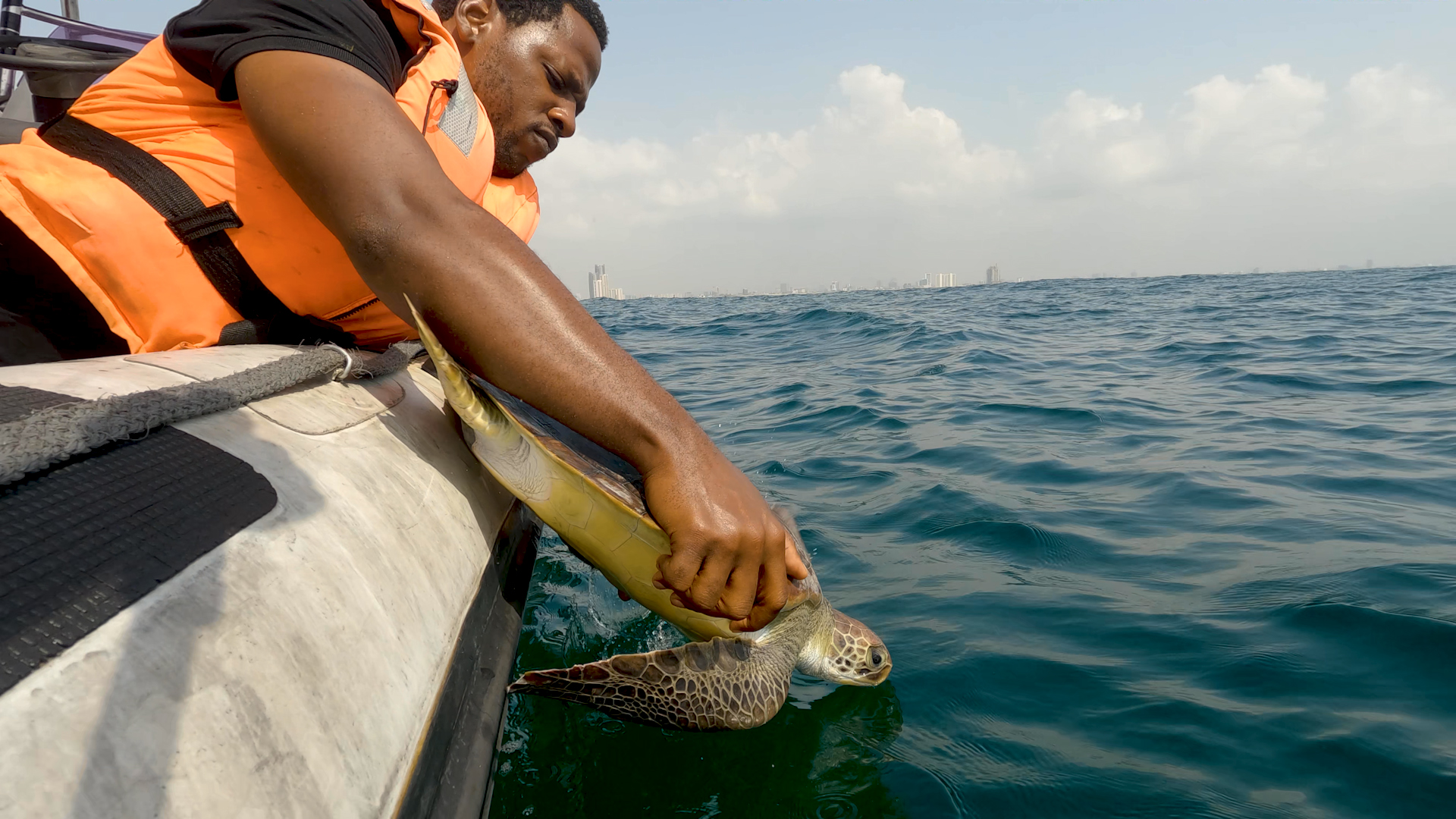
Nigerian conservationist Chinedu Mogbo releases a turtle back into the ocean after it was rehabilitated at the Greenfingers Wildlife Sanctuary. The turtle suffered from ingesting large amounts of microplastics in the ocean. (Photo: Wild Africa Fund)
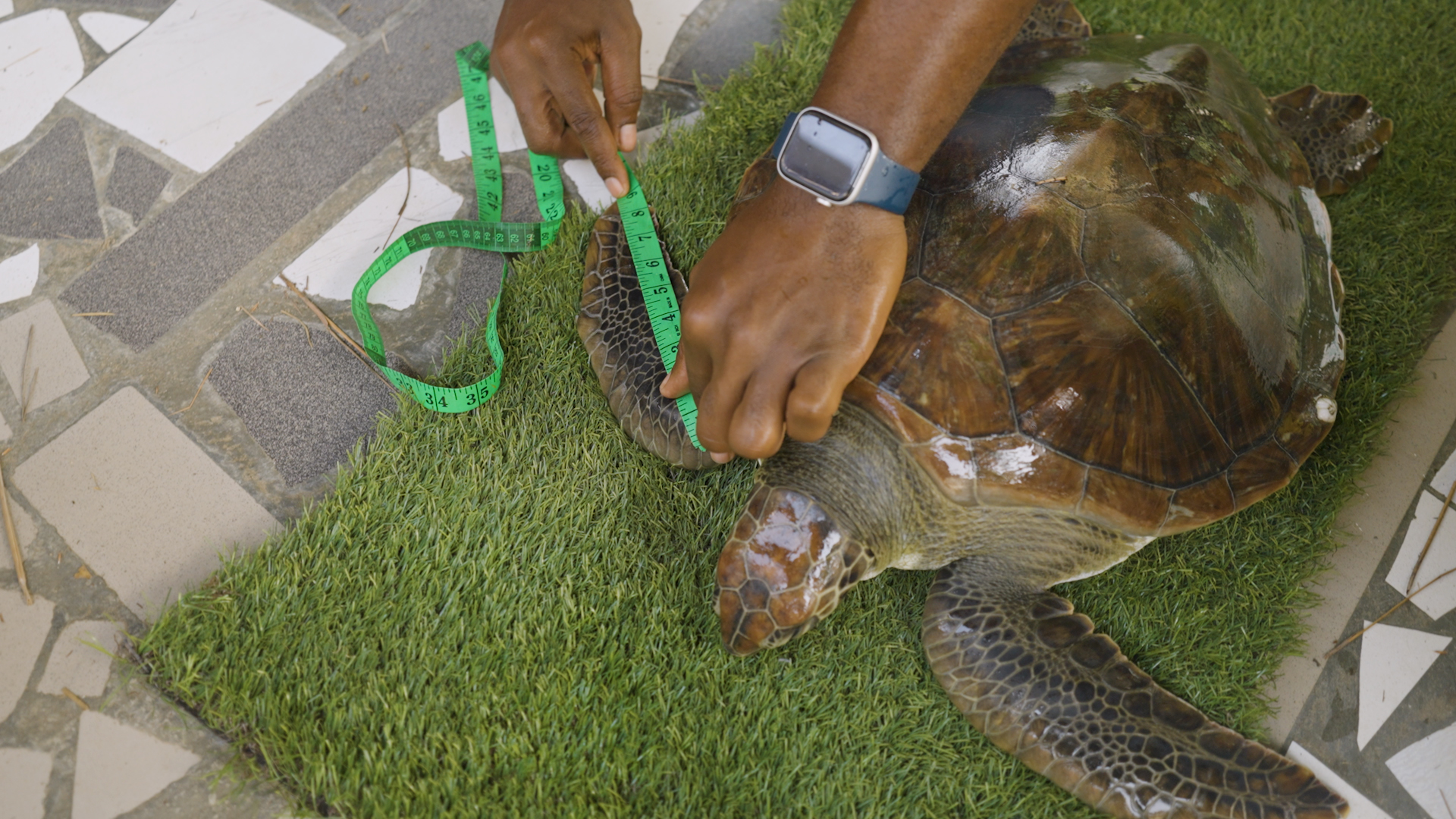
Nigerian conservationist Chinedu Mogbo checking up on a rehabilitated turtle before being released back into the ocean at the Greenfingers Wildlife Sanctuary. (Photo: Wild Africa Fund)
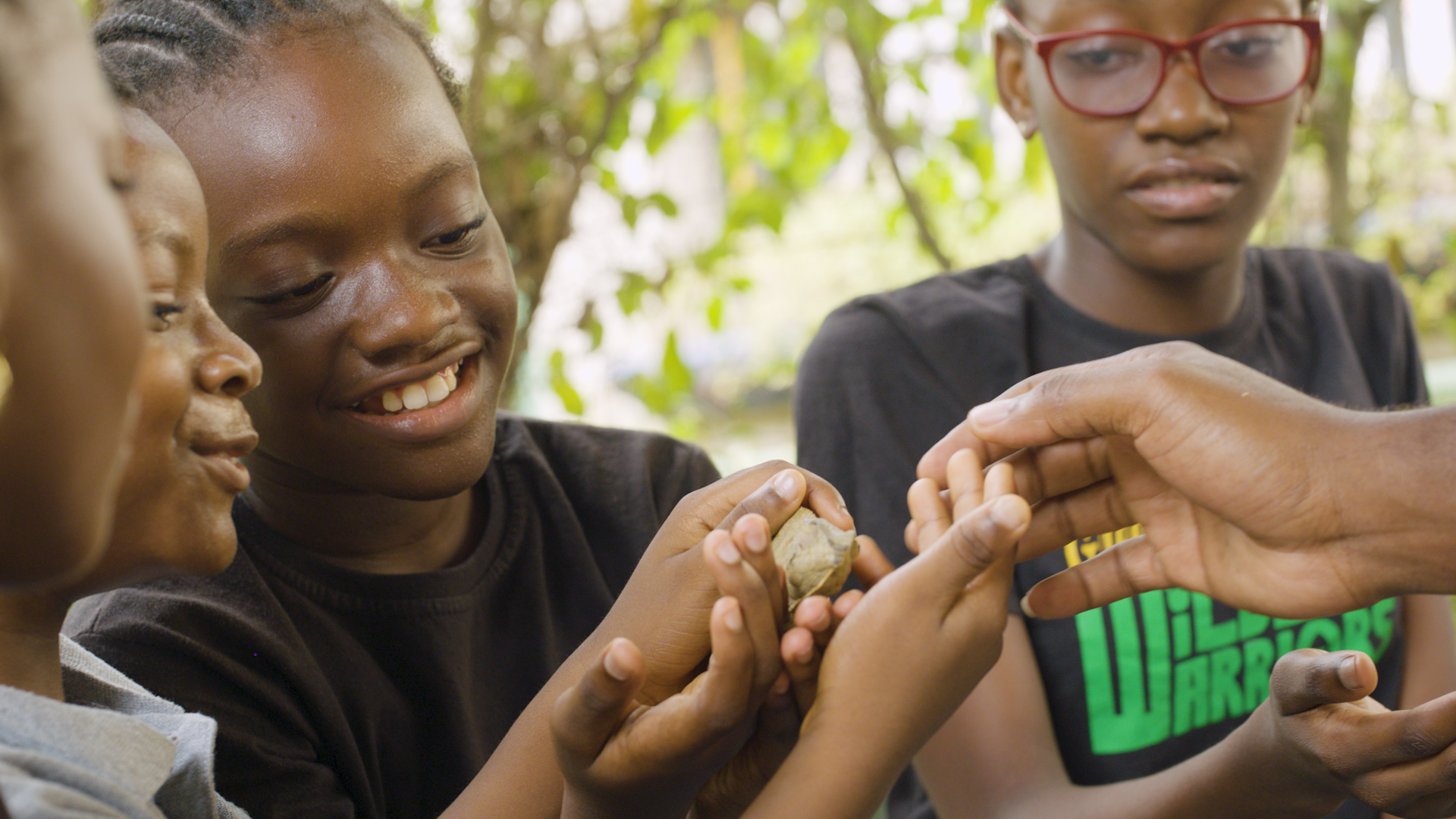
Children from schools in surrounding communities often frequent the Greenfingers Wildlife Sanctuary as part of an effort to increase education about wildlife conservation in Nigeria. (Photo: Wild Africa Fund)
Innovative wildlife conservation methods
The sanctuary eventually moved to a wetland area behind the school where Mogbo taught. It has continued to grow in this facility and over the years has opened to the public and to surrounding schools to increase education about the need for wildlife conservation in Nigeria. Mogbo said there is a great need for accurate and up-to-date conservation studies in schools.
“Nigeria needs more conservation heroes. We cannot have enough. We bring the children from different schools to the sanctuary where they get to learn about the animals… if you educate the young people, they will not grow up with the mentality that they have to eat animals, the first question that will come will be, ‘is that not an endangered species?’”
Read more in Daily Maverick: ‘Local people hold the key to conserving wildlife’ — Ndlelendi Ncube is changing how Zim’s rural communities see nature
At the sanctuary, they use every means possible to see how students can learn – through working with the animals, sport, art, even fashion.
“The Trashion show is an avenue where young people can still be intertwined with nature, be social about it, and have fun while doing it. What we do is we go to the beach, we clean up the beach, pack all the plastic there. We also go to our communities and neighbourhoods and we gather the plastic there. We then come together to create artworks and fashion from this plastic and other trash materials – ie ‘trashion’.”
Mogbo said they spend a lot of time thinking of styles, and even use the New York Met Gala as a source of inspiration to create the styles using plastic. Then they take it to the “runway” at shopping malls and centres where people gather to raise awareness and begin a series of conversations about the need for conservation, and what this plastic waste does to the ecosystem and how it damages and affects wildlife.
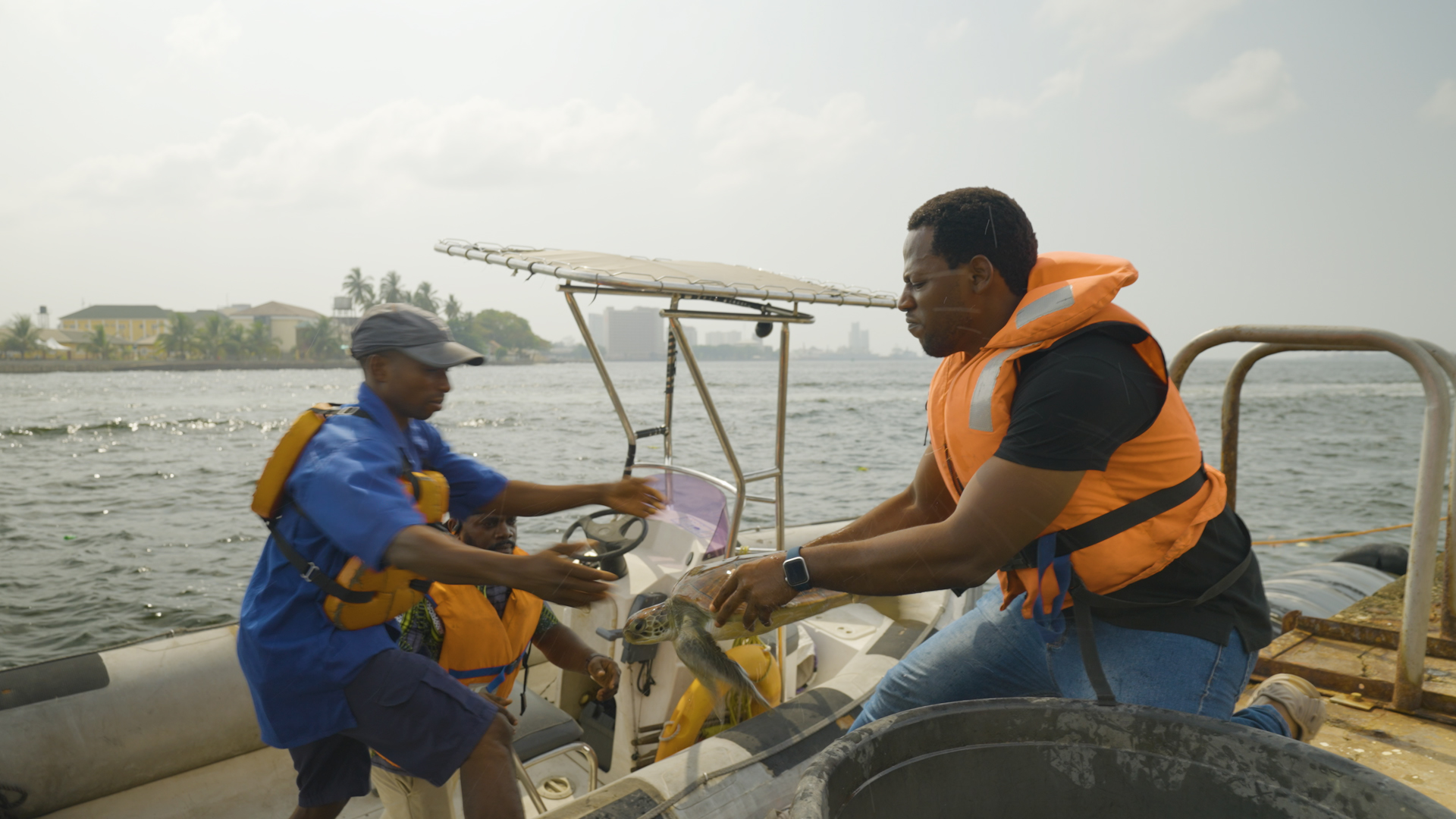
Nigerian conservationist Chinedu Mogbo releases a rehabilitated turtle back into the ocean. (Photo: Wild Africa Fund)
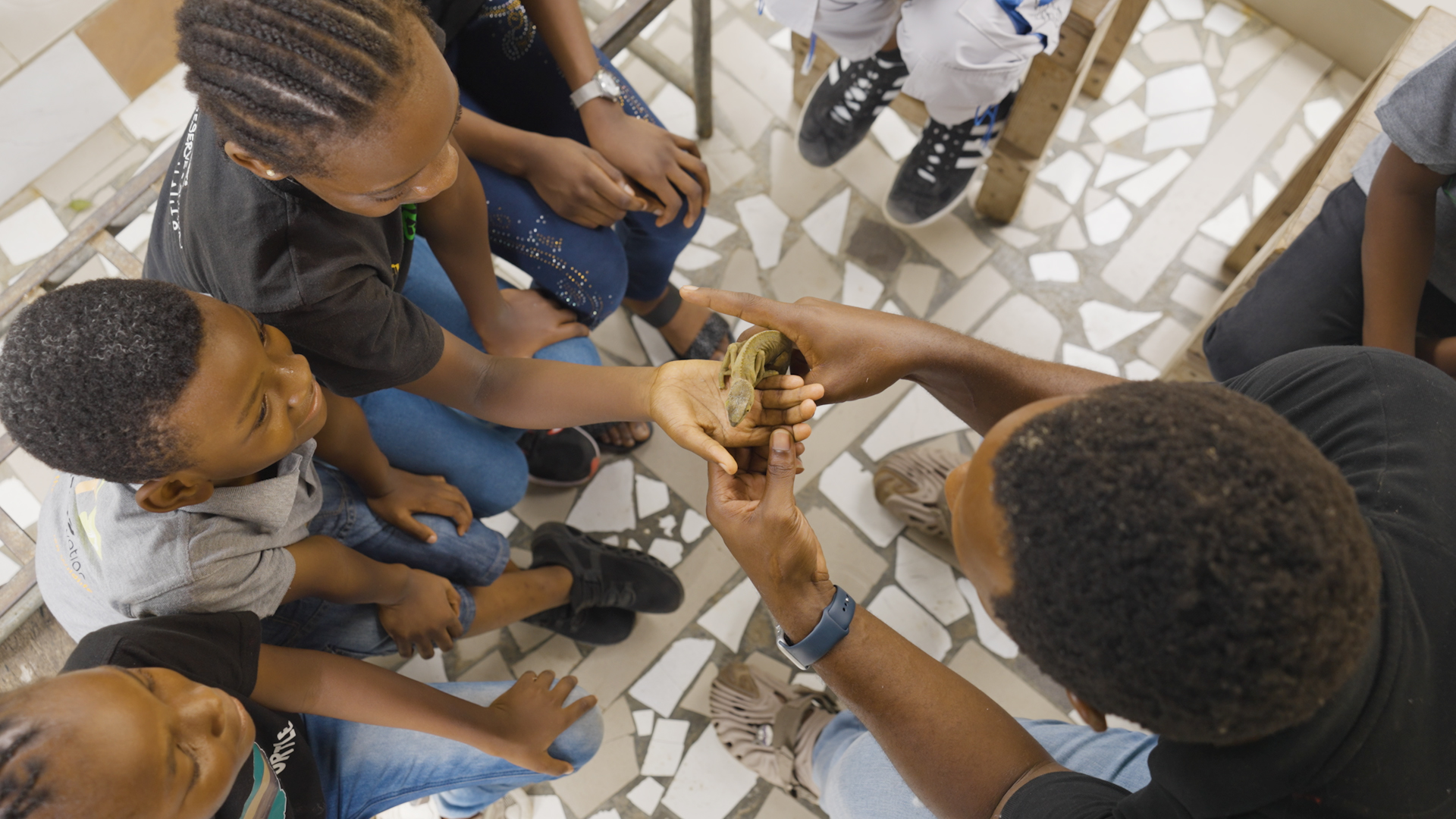
Children from schools in surrounding communities at the Greenfingers Wildlife Sanctuary. (Photo: Wild Africa Fund)
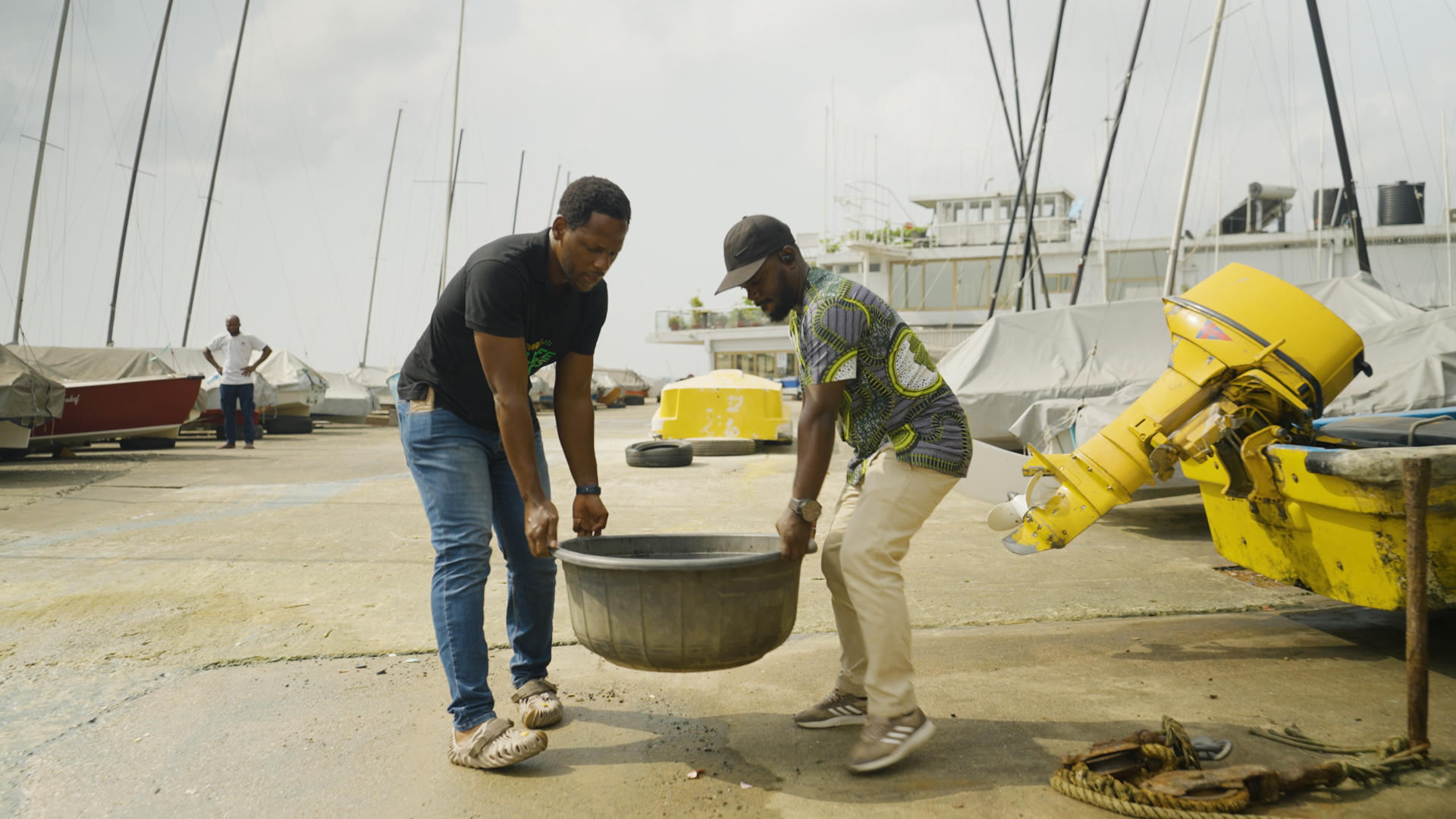
Nigerian conservationist Chinedu Mogbo releases a rehabilitated turtle back into the ocean. (Photo: Wild Africa Fund)
Combating wildlife and forest crime in Nigeria
In the National Strategy to Combat Wildlife and Forest Crime in Nigeria, prepared by the government, it states that the importance of combating wildlife crime must not be underestimated and that the country has emerged as a key source, destination and transit country for the international illegal wildlife trade over the past decade.
Here it is admitted that tackling wildlife crime is often overlooked and not prioritised and a five-year goal is set that by 2026, Nigeria will have made demonstrable progress in reducing wildlife crime, while its law enforcement and criminal justice system will have the necessary capabilities and legal framework to effectively and collaboratively tackle wildlife crime. DM
To read all about Daily Maverick’s recent The Gathering: Earth Edition, click here.



















 Become an Insider
Become an Insider
Stunning work done by Chinedu Mogbo and a fascinating feature. Uplifting and inspiring.